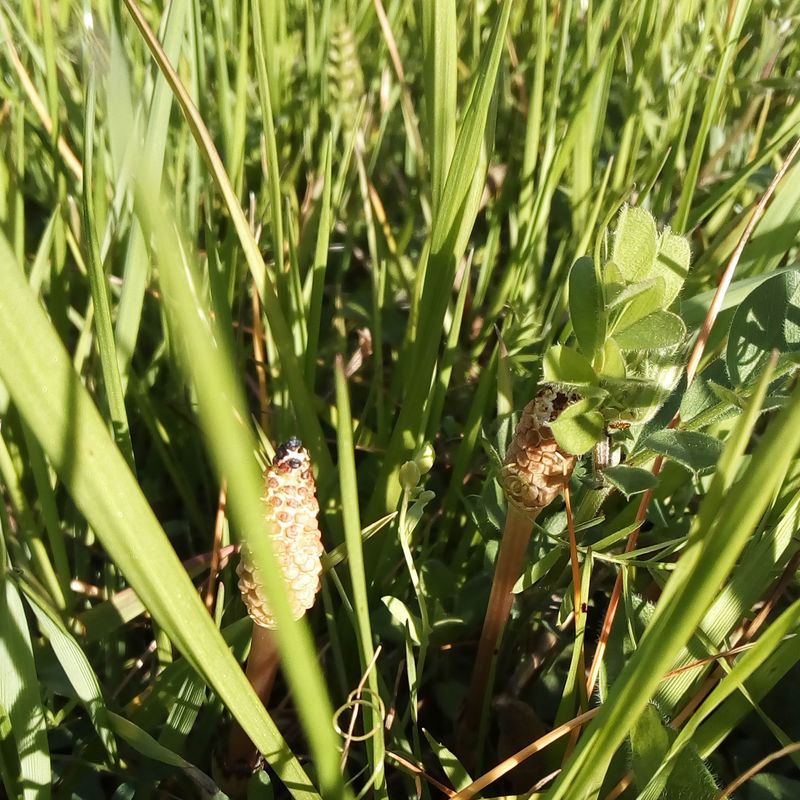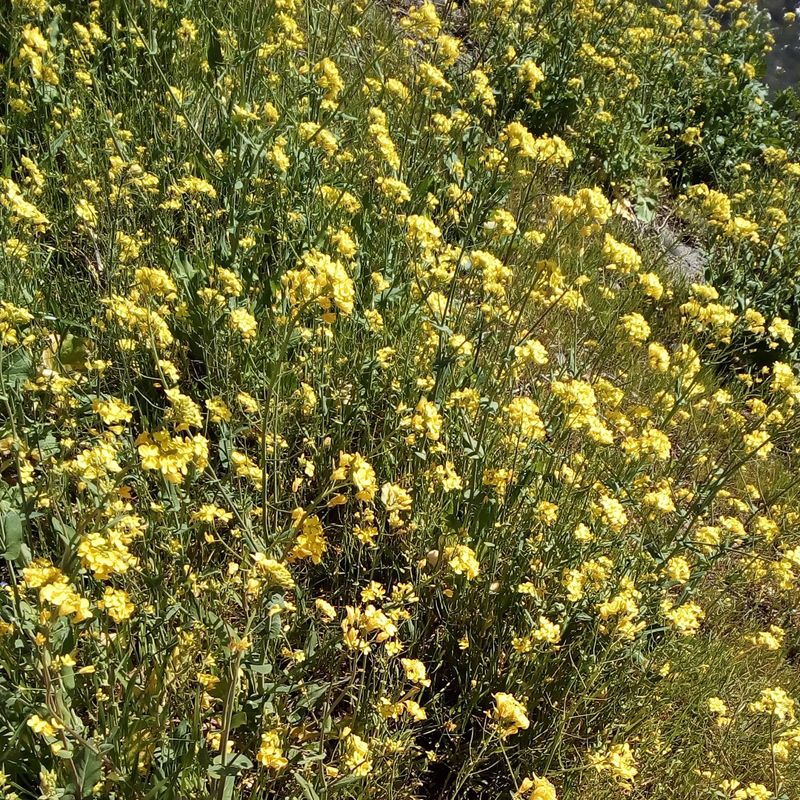Mar 19, 2018
Using Food to Reduce Hay Fever Symptoms
In the U.S. I had heard that foods like local honey and stinging nettle could reduce symptoms caused by hay fever, in addition to drinking green or rooibos teas.
I've used antihistamines like Allegra, prescribed by a doctor in Japan, then purchased over the counter. I may buy the generic version (Without the guy from Arashi in a purple wig) soon as I've been sleepy and congested with itchy eyes for the last week off and on. It's not that bad, so I almost want to avoid buying any medications, but I'm not sure how long I can last.
How about trying to reduce hay fever symptoms in a natural way, through local and seasonal foods?

I just heard that tsukushi, or horsetail, was also good for preventing allergies in spring. We had foraged for a handful of the tan colored new shoots a couple years ago after seeing some people collecting them near the river. We cooked them in the frying pan with mirin and tsuyu, but they weren't amazing, so my husband didn't seem interested to try them again.
After some online research, I found a list of foods supposedly beneficial for relief of allergy symptoms. Anything that is an anti-inflammatory (likewise avoiding inflammatory foods like meat and sugar) or that has anti-histamine properties is great.
Ginger, turmeric, garlic, and onions are universally regarded as beneficial. Colorful fruits and veggies, as well as seeds and fish high in omega 3s are also recommended. In general, foods high in vitamins A and C should be helpful. Foods containing the flavinoid quercetin (including apples with the peel) and beta-carotine are beneficial.
Some sites recommended fruits like mango and pineapple, which aren't exactly available everywhere during spring. I think it makes more sense to stick with winter or spring foods like parsley and kiwi which contain the same vitamins.
There was a little conflicting information. More than one article stated that oranges and tomatoes are beneficial, then others said that there is histamine in oranges, tomatoes, cheese, chocolate, and red wine, so they should be avoided. It's hard to believe that oranges would be bad for you, but if you have allergies, they might be?
In addition, cheese, chocolate, and wine are fermented, but not regarded as the healthy fermented foods that we should eat to help with allergy symptoms.
Switching to recommendations on Japanese websites, several things were in agreement, but I wanted to find more Japanese foods that would be hard to find back home. One thing that matched was aojiro, as it usually contains kale, one of the many leafy greens recommended on sites in English.
Oily fish like sardines are also mentioned, although referred to as 'blue' fish in Japanese. Similarily, egoma oil (made from ohba or perilla) is high in omega 3s. Fermented foods like miso and natto are also recommended.
I found that horsetail contains quercetin and is anti-inflammatory, anti-microbial, as well as good for the respiratory system. As allergies are related to the respiratory system, foods that benefit our lungs should also help. I found that green leafy vegetables and grapefruit fit this category, although grapefruit is most likely imported to Japan. Licorice tea is an expectorant, helping to clear the lungs and airway, but is hard to find in Japan. (I've ordered a blend on Amazon in the past, but it's rare to find any Japanese who like licorice.)
This article (Japanese) is about the condition of the body during the change to the spring season. It recommends using foods like green onions, spring chrysanthemum, and mint to help our bodies through the change. Other materials I've recently read (Seitai Method) explain that hay fever is caused by an imbalance in the body during the change of seasons rather than only from pollen. It says treating the symptoms with medicines only makes the problem worse and we need to solve the source of the problem.

I decided I needed to go out foraging for horsetail again, and at the same time pick up some yomogi (mugwort) and na no hana (easy to find because of their bright yellow flowers in spring). I think eating the local spring foods should be healthy, as long as they are properly identified and grown in areas with no pesticides. (Be sure to do your research if you decide to forage!)
If foraging isn't your style, check your local yaoya, as I've seen na no hana and horsetail (tsukushi) in the right season.
Have you heard of any other foods that help with hay fever?
*Update: after cooking and eating a small amount of horsetails (as a kind of tamago-don), in addition to a na no hana side dish, it didn't make an obvious difference in my mild hay fever symptoms. It's been rainy so it's hard to know for sure. I'm still medicine free this season, with the exception of the occasional kakkontou.



0 Comments